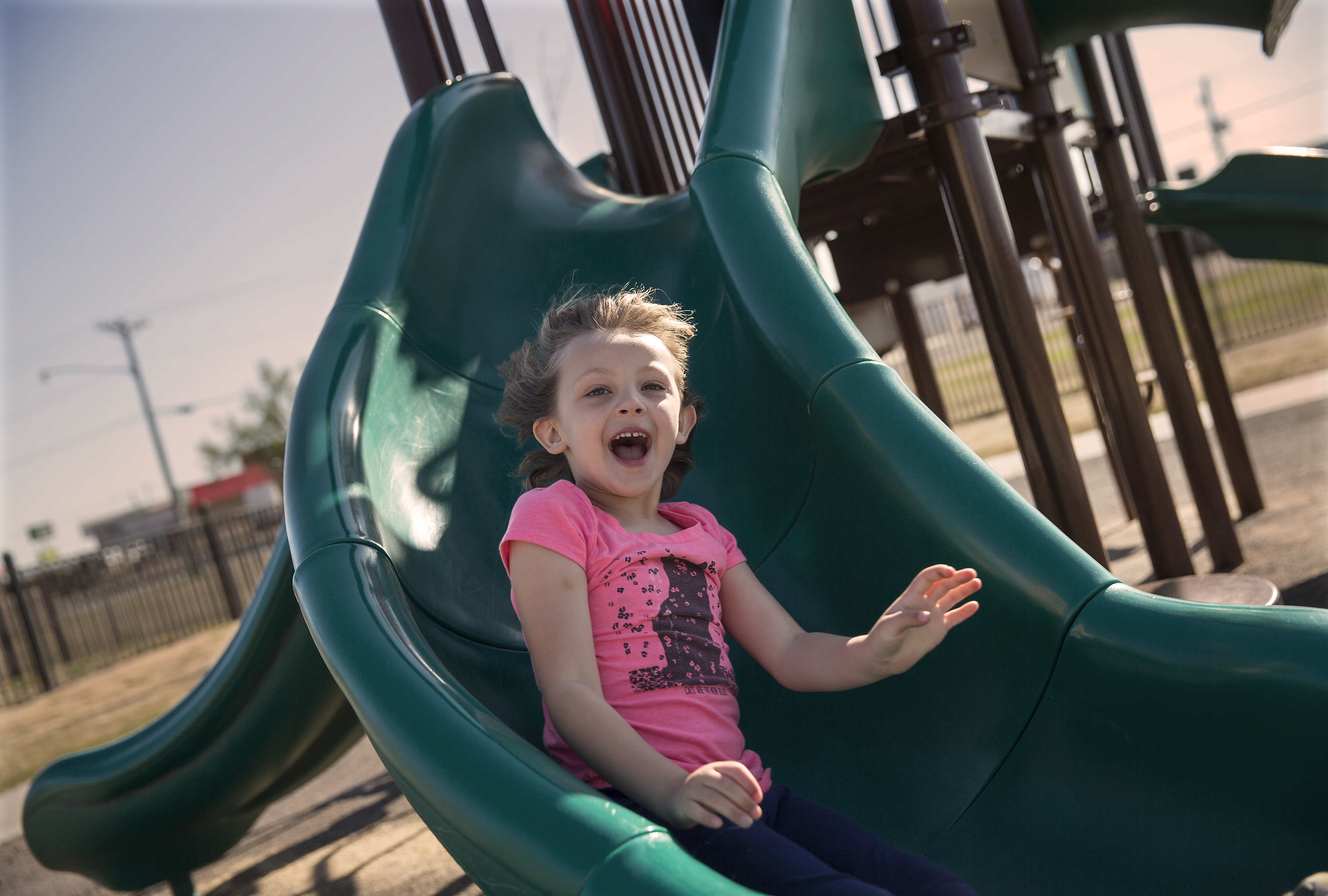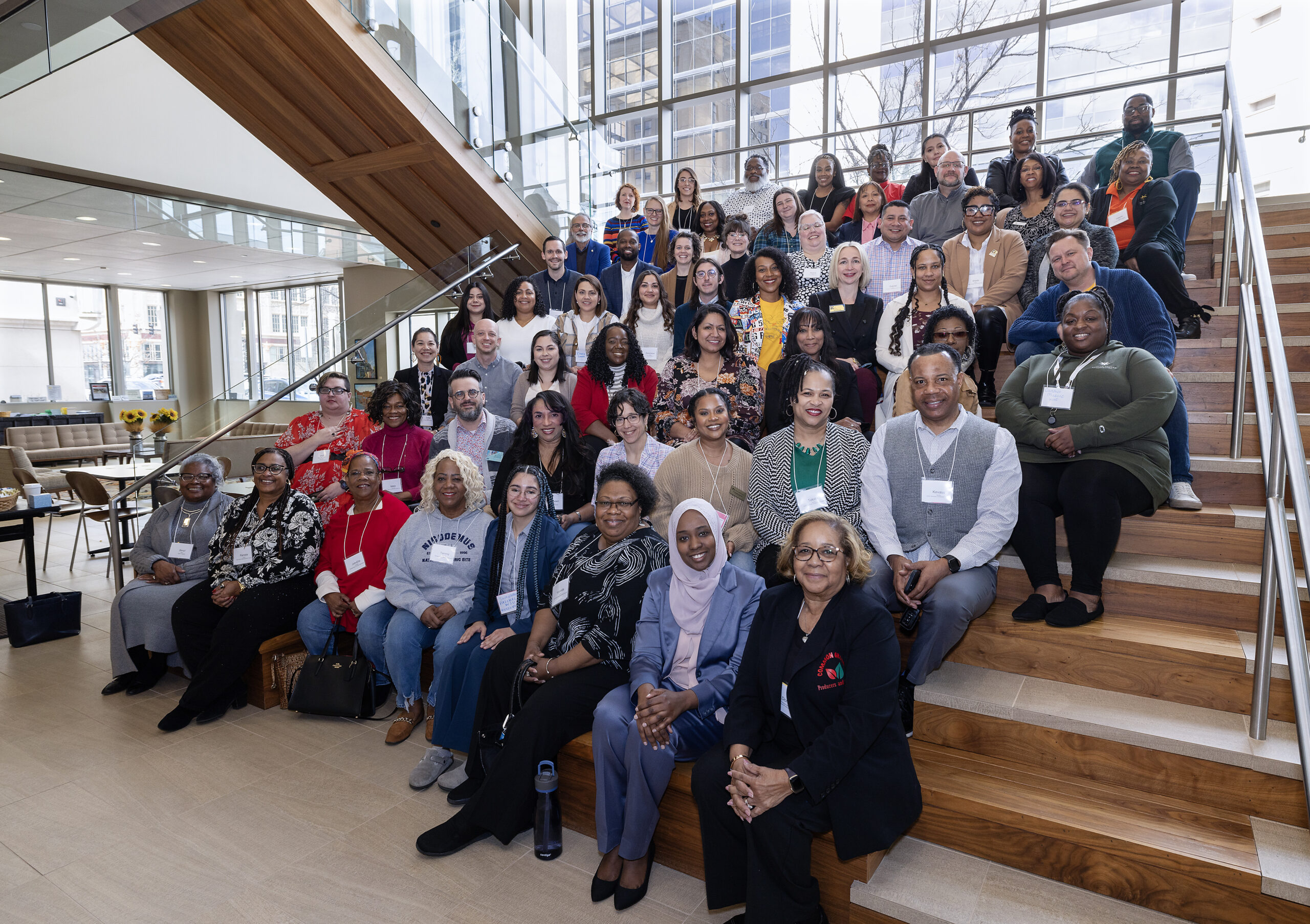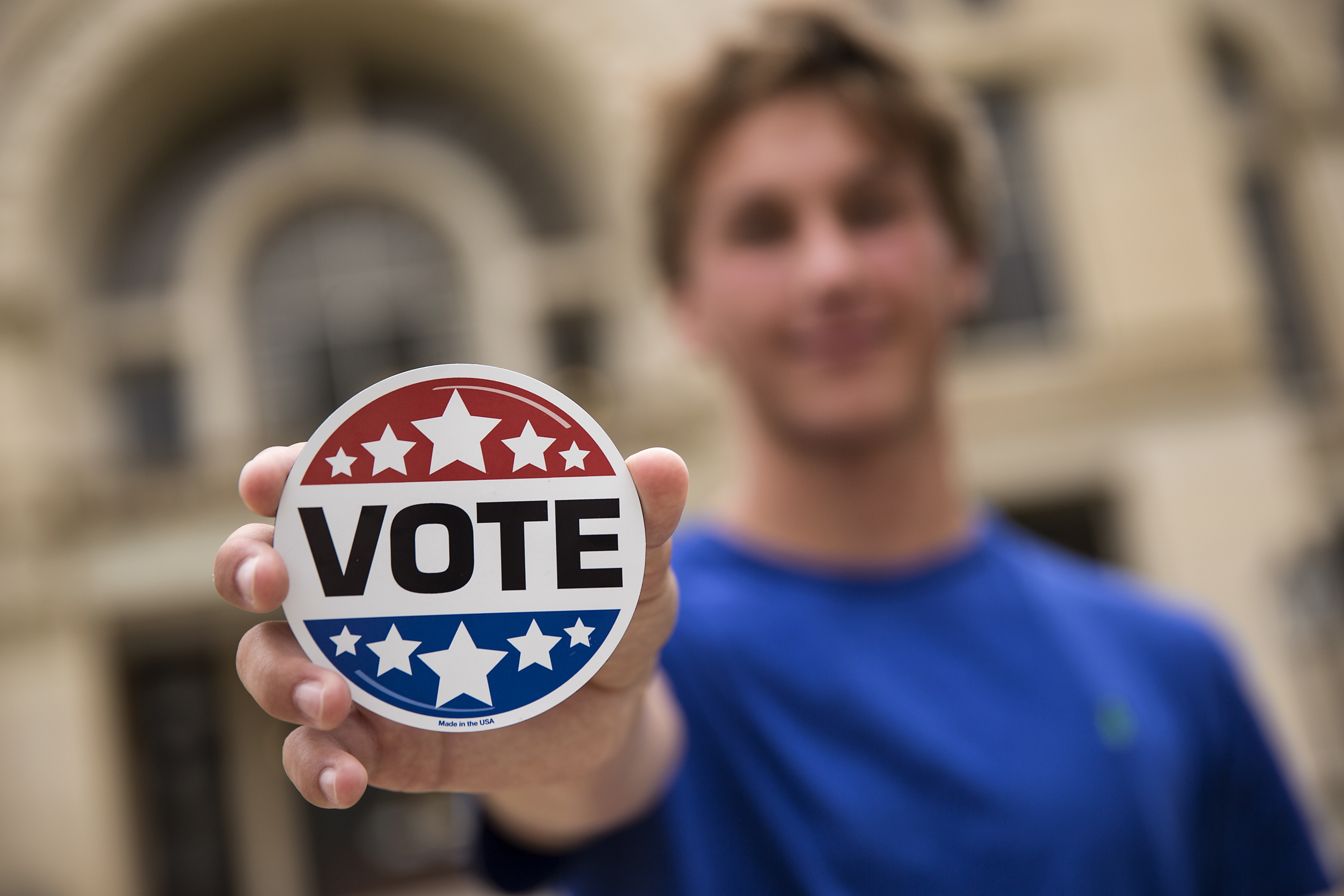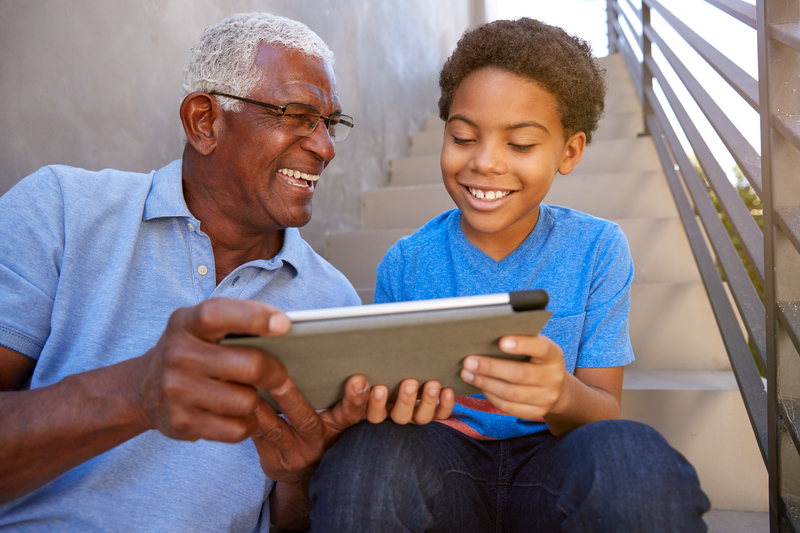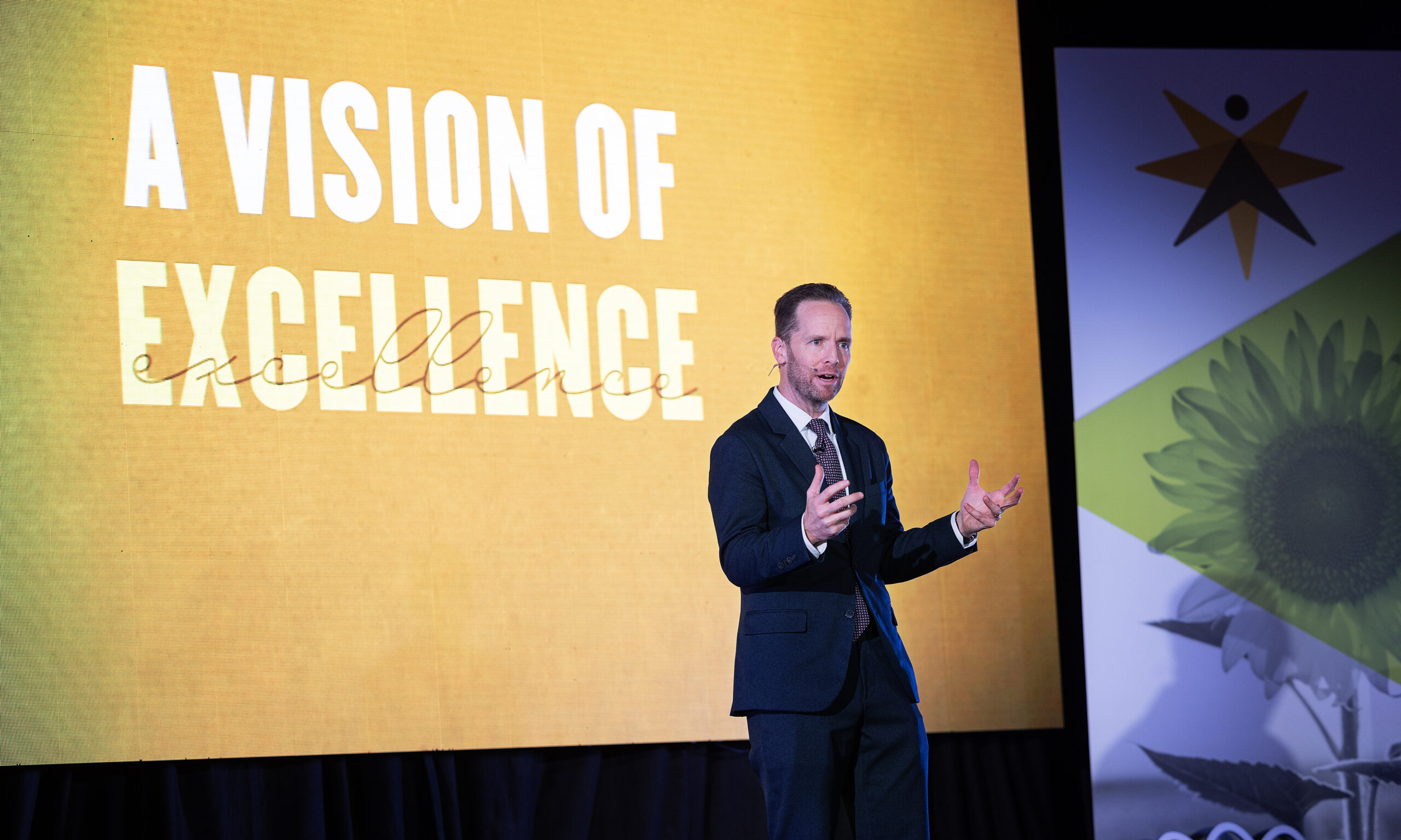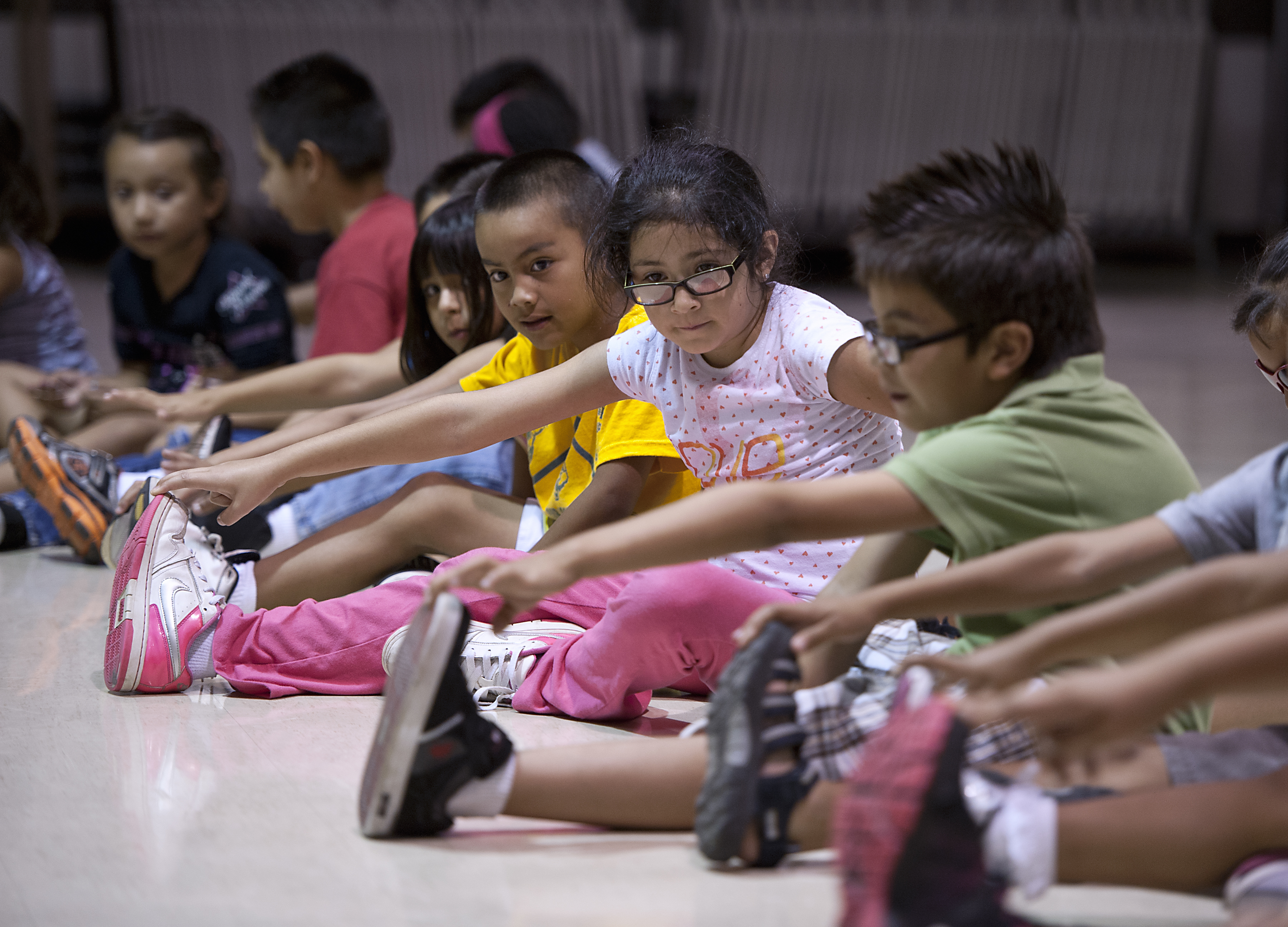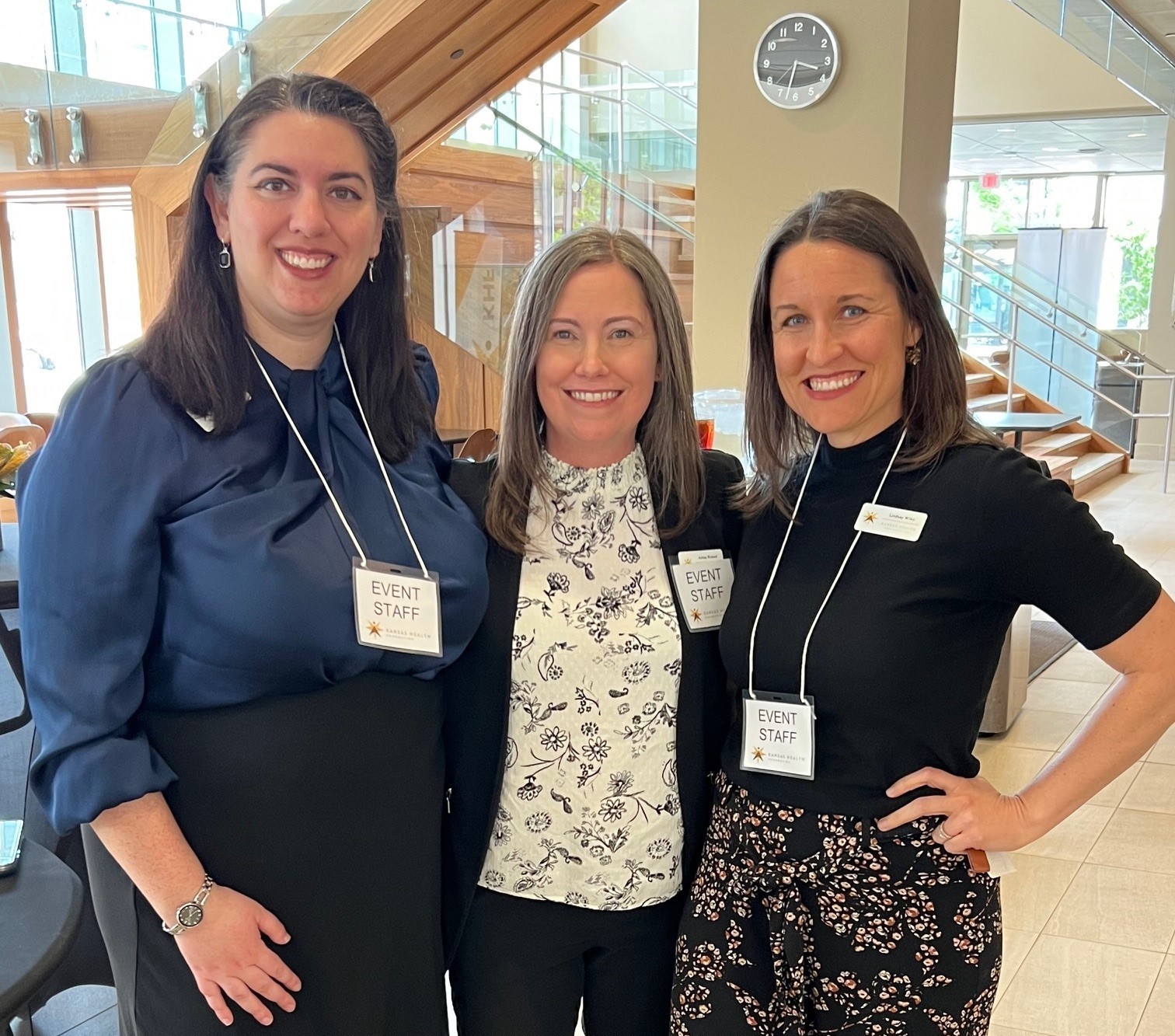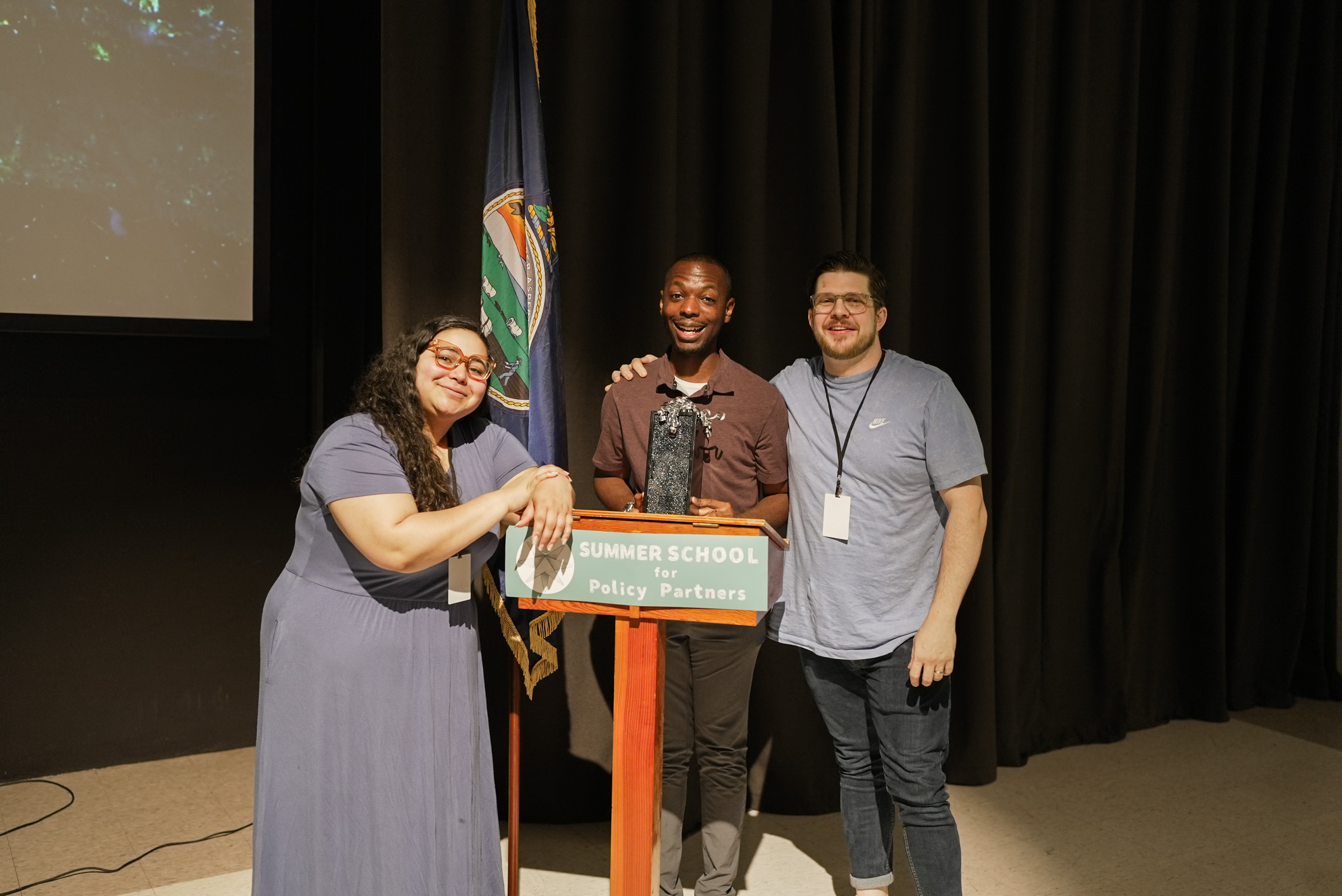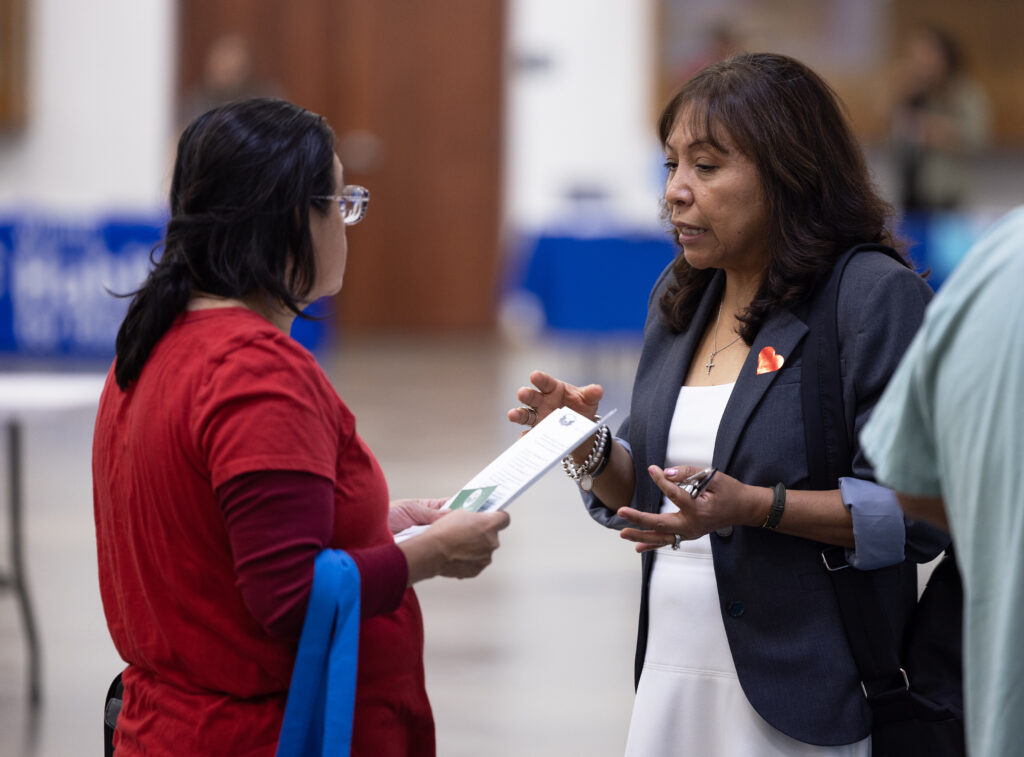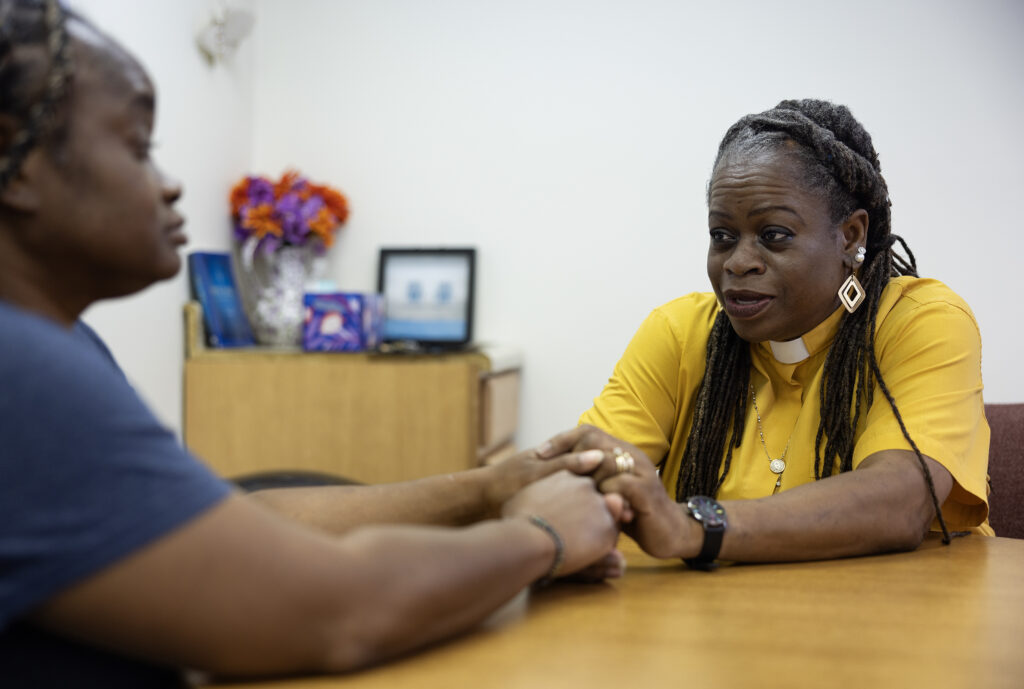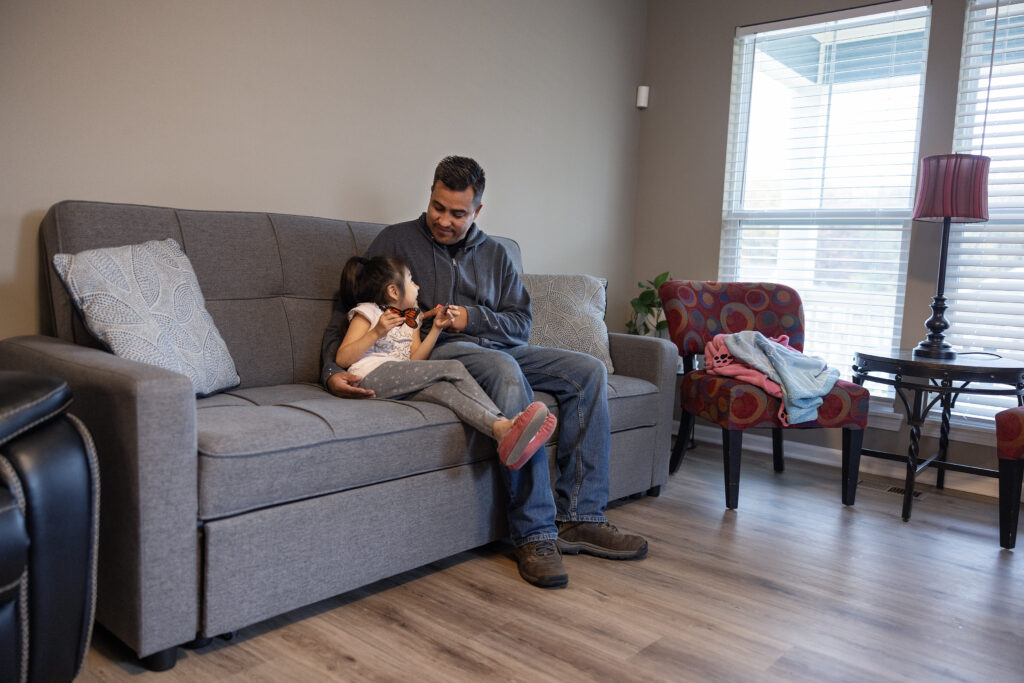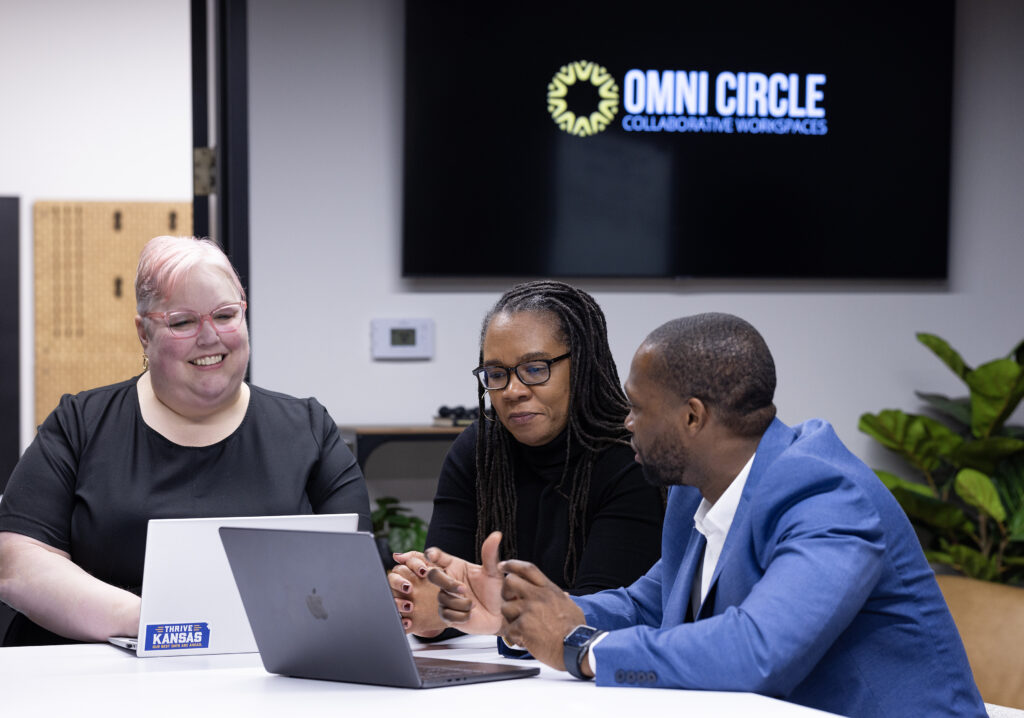This article is part of an ongoing series to chronicle the work of the 30 organizations involved in KHF’s Building Power and Equity Partnership (BPEP) initiative. To learn more about BPEP, click here.
Sofia Montenegro immigrated from Ecuador to Wichita, Kansas, and was looking for information on health care providers and wellness resources. She doesn’t speak English and was told she’d find access to resources and people who could communicate with her at the Evergreen Branch Library and Community Center in the city’s North End district, a predominantly Spanish-speaking neighborhood.
Once there, she met with a community health worker, or promotora — someone who could speak her language and provide informal, culturally appropriate guidance. She was invited to an upcoming health conference organized by Salud Más Bienestar, which translates to Health + Wellbeing. The organization is about six years old and their annual My Health Symposium is one way the nonprofit provides information to ensure Spanish-speaking people in Wichita have access to relevant resources and knowledge to improve their well-being and quality of life.
At the conference, Montenegro learned how to read nutrition labels, to understand the difference between salt and sodium, and heard enough about hypertension to advise her mother, who suffers from high blood pressure, to begin daily monitoring and recording of her blood pressure to share on her next doctor visit. Montenegro also said she felt a sense of community for the first time since moving to Wichita, and she plans to volunteer with Salud Más Bienestar to help others like herself get information that can lead to healthier lifestyles.
The Hispanic/Latino population in Kansas is growing six times faster than other ethnic groups. Salud Más Bienestar works to dismantle the inequities that impact this population by offering information, workshops, programs, health fairs and various initiatives to promote wellness and health awareness.
“We are a bridge for people to get to resources, for people who have a language barrier or they just don’t know the resources are available to them,” said Catalina Garcia, co-executive director of Salud Más Bienestar. “Many nonprofits and organizations don’t have our community on their radar. With Salud Más Bienestar, we are boots on the ground, we are already in the community.”
How Salud Más Bienestar started
Salud Más Bienestar’s roots began in 2019 as a health and wellness coalition program in Wichita’s North End neighborhood. Their initial focus was to get residents eating healthier and moving more by providing health education in Spanish.
Garcia and Denise Romero-Cavazos were community members recruited to volunteer for that coalition. Garcia was a nurse who has lived in Wichita since 2005. She came on board as a volunteer interested in sharing the benefits of physical and mental health with her neighbors. Romero-Cavazos, who moved from Mexico to Wichita in 2016, has a background in campaigning during election season and wanted to help connect her community to available resources.
By 2020, they started to see there was a need beyond cooking and exercise classes.
“The coalition started to bring in organizations to present to our community and explain the resources they had available, and we found that most of the organizations didn’t speak Spanish,” Garcia said. “They had resources but they didn’t know how to bring them to our community. Our community needed the resources but were unable to access them.”
The coalition’s work was ending, but the pair got excited by the prospect of bridging the gap to provide culturally relevant resources to a community that had been marginalized. The organization Salud Más Bienestar formed and the two women became certified community health workers through Wichita State University and the Kansas Community Health Worker Coalition.
At the time, there were no other bilingual community health workers.
“I think of community health workers as human flyers,” Romero-Cavazos said. “To get the message across, we must speak their language, we must look like them, we must be relevant to them and familiar to them so we can earn their trust.”
Romero-Cavazos and Garcia also became instructors so they could train and certify more community health workers to reach more people.
Meanwhile, Salud Más Bienestar continued offering weekly presentations covering art, financial budgeting, nutrition, self-care and a range of other health topics, as well as establishing support groups. They also continued building relationships, connections and resources within the community, including partnering to bring existing Wichita resources such as Dress for Success and Convoy of Hope’s back-to-school supplies giveaways into the city’s Spanish-speaking community.
In 2021, Salud Más Bienestar began partnering with the Kansas Food Bank to bring food distribution events to Wichita’s Hispanic/Latino community. These events continue, with monthly distributions at Evergreen Park. Other current collaborations involve Empower, Bike Walk Wichita, city of Wichita, Sedgwick County, Sunflower Organization, Kansas Leadership Center, Facts Not Fear ICT and Enrique S. Camarena Educational Foundation.
A partnership with the Kansas Health Foundation
The Kansas Health Foundation (KHF) first started partnering with Salud Más Bienestar in 2021 when giving the organization a Presidential Grant that Salud Más Bienestar used to offer healthy cooking lessons for families. In 2024, Salud Más Bienestar was named as one of 30 Kansas organizations that KHF selected for long-term partnership through its Building Power and Equity Partnership (BPEP) initiative.
BPEP works closely and collaboratively with grassroots organizations with a stated mission to help address health disparities in Kansas. The initiative is the largest single investment focused on racial equity in KHF’s history, with a possible investment of $30 million during the next decade. In addition to grant funding, Salud Más Bienestar receives access to training, outside expertise and third-party services meant to grow and develop the organizations and the influence they have in addressing issues of equity and justice.
Valerie Black-Turner, community impact officer at KHF, said Salud Más Bienestar’s strength is its ability to leverage partnerships to serve and empower the Hispanic/Latino population throughout Kansas. That has included equipping themselves with various certifications to teach and energize the community, which has created influence among Hispanic/Latino communities across the state.
“Salud Más Bienestar recognized the need to partner and collaborate with other organizations, agencies and resources,” Black-Turner said. “They are in partnership with the Kansas Leadership Center where they teach the leadership competencies in Spanish. They partner with Alce Su Voz (Raise Your Voice), a BPEP cohort organization, to empower the Hispanic/Latino community members to advocate for their medical care. Salud Más Bienestar partners with Bridges ICT and are certified to teach the Getting Ahead program (a component in the Bridges Out of Poverty program) while also providing certification education to community health workers to do the same.”
Salud Más Bienestar served 8,000+ last year
Salud Más Bienestar reached at least 8,000 people in the Wichita area in 2024, breaking down language and cultural barriers to support and advance racial and health equity among the Spanish-speaking Hispanic/Latino community.
“We are making a big impact in our community with the monthly food distribution events, fitness and nutrition workshops and other programs we offer,” Garcia said.
Among those helped were six members of a Venezuelan family who recently immigrated to Wichita. The father, mother, teen daughter and three elementary-aged children didn’t have family to help and didn’t speak English. Evelyn Garcia, a community resource navigator focused on the Hispanic/Latino community for WSU Tech (a two-year workforce training program affiliated with Wichita State University), was helping the high schooler with enrolling in school when she realized the family needed more help than she could provide.
“Denise and Catalina stepped up and helped this family by connecting them to resources that could get them beds, blankets, shoes and food distribution until they found work and got settled,” Evelyn said. “Salud Más Bienestar and WSU Tech both office out of the Evergreen Community Center and we also work in the Oaklawn Activity Center, catering to Hispanic and Spanish-speaking populations. Sometimes I come across students whose families are undocumented and they need help in the areas of physical or mental health. Salud Más Bienestar plays an important role in connecting them to resources already available.”
As a grassroots organization with two full-time employees, Salud Más Bienestar’s founders said the organization is still in the process of establishing itself. They have an aggressive schedule filled with original events they create as well as collaborative events with other organizations. Community volunteers — nearly 240 in 2024 — help with some of these big events but the real driver of growth relies on Salud Más Bienestar’s success at recruiting, training and retaining community health workers.
“Thanks to assistance from the Kansas Health Foundation, we’ve been able to offer stipends to individuals who commit to become a certified community health worker,” Catalina said. “Our hope is that we can continue to build the number of promotoras and duplicate what Denise and I are doing. That will allow us to operate at other community centers throughout Wichita and eventually across the state of Kansas.”
Salud Más Bienestar is focusing most of its BPEP grant money on establishing this team of bilingual community health workers who can assess issues that need addressed and determine the steps to promote change around those issues, including providing information and identifying available resources. These individuals are trained by Salud Más Bienestar in 12 core competencies through 140 classroom hours and another 40 hours of service.
“We help them to be better educators, to be able to teach people about health topics like disease prevention, nutrition, managing chronic conditions and tips on healthy living,” Romero-Cavazos said. “Community health workers also advocate, we help individuals navigate the healthcare system, access service and understand their rights. We also provide emotional support, which can include creating support groups. Finally, we connect them to the resources they are needing. We are not the experts, but we can connect them to professionals who can help.”
With more promotoras, Salud Más Bienestar can expand to more community centers and sites to be able to reach all areas of Wichita. Eventually, they’d like to be statewide. In 2024 they certified about 20 community health workers, including four from the southwest Kansas community of Ulysses.
KHF has confidence Salud Más Bienestar will continue to eliminate the inequities that cause the greatest health disparities for the Spanish-speaking Hispanic/Latino communities, Black-Turner said.
“Salud Más Bienestar has begun to create the power and influence to make progress toward their boldest vision of becoming a comprehensive and culturally appropriate health network hub that connects providers, organizations, advocacy groups and community-based organizations across the state through a collaborative approach.”
###

